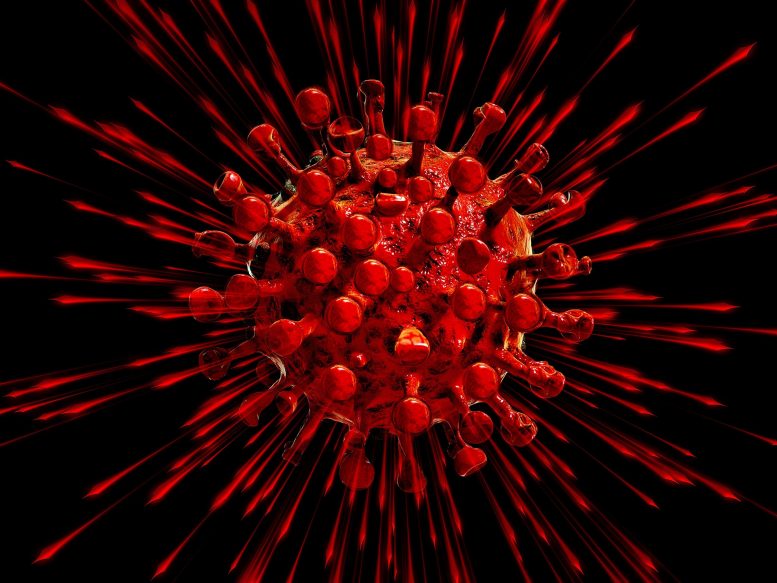
COVID-19 patients with cognitive difficulties are twice as likely to experience long COVID symptoms, potentially linked to anxiety and depression.
According to new research from UCLA, individuals who reported experiencing cognitive difficulties, such as memory problems, during the COVID-19 pandemic are more likely to have persistent physical symptoms of the disease compared to those who did not report such cognitive issues.
Over a third of individuals struggling with long-term symptoms of COVID-19 have reported cognitive difficulties, including memory problems. These cognitive issues have been linked to increased instances of anxiety and depression.
Psychological Factors in Long COVID
The findings indicate that psychological issues such as anxiety or depressive disorders may play a part in some people who are experiencing long COVID, technically known as post-COVID-19 condition, or PCC.
“This perception of cognitive deficits suggests that affective issues – in this case anxiety and depression — appear to carry over into the long COVID period,” said senior author Dr. Neil Wenger, professor of medicine in the division of general internal medicine and health services research at the David Geffen School of Medicine at UCLA. “This is not to say that long COVID is all in one’s head, but that it is likely not a single condition and that for some proportion of patients, there is likely a component of anxiety or depression that is exacerbated by the disease.”
The study was recently published in JAMA Network Open.
Long COVID is described as experiencing persistent symptoms of the disease more than four weeks after the initial infection. The researchers’ aim was to determine if there was a link between their patients’ perceived cognitive difficulties during the acute COVID illness and later physical manifestation of long COVID.
The researchers surveyed 766 patients enrolled in UCLA’s SARS-CoV-2 Ambulatory Program who had confirmed symptomatic COVID infection and had either been hospitalized at UCLA or at one of 20 local health care facilities or were referred to the program by a primary care physician and been treated as outpatients.
Patients were surveyed by telephone at 30 days, 60 days, and 90 days following hospital discharge or, in the case of non-hospitalized patients, after the date of a positive COVID test to ascertain if they felt their health was back to normal. They were asked if they experiencing physical symptoms of long COVID. For instance, could they complete activities such as running, moving a table, climbing one flight of stairs, or carrying groceries, or did they continue to have a fever, chills, loss of smell, or fatigue?
They were also asked three questions related to cognitive function: whether they had trouble getting organized or concentrating on activities such as watching television or reading a book, or had forgotten what they discussed in a telephone conversation during the prior four weeks.
Cognitive Deficits and Persistent Symptoms
The researchers found that 276 (36.1%) of the patients surveyed perceived during the acute illness or the following weeks that they had cognitive difficulties. In addition, these patients were twice as likely as those without perceived cognitive deficits to report also experiencing physical symptoms at 60 and 90 days.
There are some limitations to the findings, the researchers note. These include a lack of objective cognition measures because the survey relied on subjective responses about cognitive deficits. Also, the researchers did not have data on participants’ possible cognition, depression, and anxiety prior to COVID infection. In addition, the findings may not apply to other patient cohorts given that participants were treated at an academic medical center and were referred to the program based on physicians referring them based on their belief that the patients were at clinically high risk for cognition deficits.
Still, the findings “may help us disentangle the complex construct that is PCC,” the researchers write. “These findings suggest a substantial psychological component for long-lasting SARS-CoV-2 symptoms for at least some patients.”
Reference: “Perceived Cognitive Deficits in Patients With Symptomatic SARS-CoV-2 and Their Association With Post–COVID-19 Condition” by Teresa C. Liu, MD, MPH; Sun M. Yoo, MD, MPH; Myung S. Sim, DrPH; Yash Motwani, BS; Nisha Viswanathan, MD and Neil S. Wenger, MD, MPH, 5 May 2023, JAMA Network Open.
DOI: 10.1001/jamanetworkopen.2023.11974
The study was funded by the National Center for Advancing Translational Science of the National Institutes of Health under the UCLA Clinical and Translational Science Institute.
Never miss a breakthrough: Join the SciTechDaily newsletter.